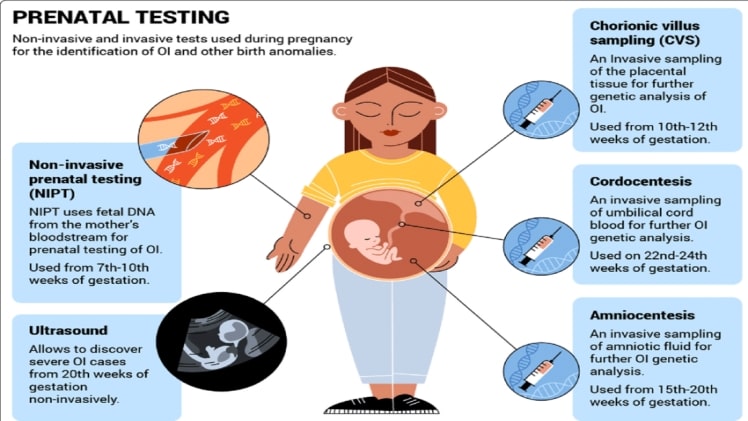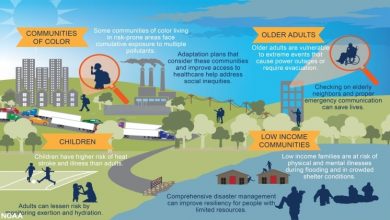The Benefits Of Early Prenatal Diagnosis And Screening

Prenatal diagnosis and screening determine what a baby’s health might be like before birth. This test can tell you either if your baby will have a congenital disability or might have Down syndrome or any other severe genetic condition. However, this type of testing has some pros and cons to consider. In this article, experts in obstetric ultrasound, genetic disability screening, high-risk pregnancy care, and prenatal diagnosis discuss the benefits of early prenatal diagnosis and screening.
Early prenatal diagnosis and screening can be highly beneficial for women who are considered to be at high risk for pregnancy complications. By having access to early diagnosis and screening, high-risk pregnant women can receive the necessary care and treatment to help improve their chances of having a healthy baby.
In some cases, early prenatal diagnosis and screening can save the mother’s and child’s lives. Early diagnosis and screening can make all the difference regarding high risk pregnancy care.
What is Early Prenatal Diagnosis?
Early prenatal diagnosis (PND) is the process of testing for fetal abnormalities during pregnancy. It can be performed as early as ten weeks into the pregnancy and is often done in conjunction with other prenatal tests, such as chorionic villus sampling (CVS) or amniocentesis.
Prenatal screening tests assess the risk of a fetus having certain conditions or congenital disabilities. These tests do not diagnose a disease but provide information about the likelihood of a problem. Early PND can be used to confirm or rule out an abnormal finding on a screening test.
There are several reasons why a woman may choose to have early PND, including
To confirm or rule out an abnormal result from a prenatal screening test.
To obtain more information about the health of the fetus.
To make decisions about continuing or terminating the pregnancy.
To prepare emotionally and financially for a child with special needs.
To allow time for further testing or treatment before the baby is born.
The decision to have early PND is personal and should be made after discussing all risks and benefits with your healthcare provider.
Types of Early Prenatal Diagnosis
There are two main types of early prenatal diagnosis: screening and diagnostic testing.
Screening tests estimate the risk of a specific condition or congenital disabilities. They can be done at any time during pregnancy but are usually done between 10 and 12 weeks. The nuchal translucency scan, which gauges the thickness of the skin at the back of the infant’s neck, is the most popular screening procedure. It can indicate an increased risk for conditions such as Down syndrome.
A suspected condition is either confirmed or ruled out using diagnostic tests. Diagnostic tests can include amniocentesis and chorionic villus sampling (CVS). These procedures carry a slight chance of miscarriage, so they are only offered if there is a strong suspicion of a problem. They are usually done after screening tests have suggested an increased risk.
The Benefits of Early Prenatal Diagnosis
There are many benefits of early prenatal diagnosis and screening. These include the ability to:
-Identify potential health problems early on
-Make informed decisions about pregnancy and childbirth
-Receive timely treatment for any identified health problems
-Reduce stress and anxiety during pregnancy
Early prenatal diagnosis and screening can help to ensure a healthier pregnancy and baby. It is essential to talk to your healthcare provider about your options and what is suitable for you.
How to get screened for early prenatal diagnosis?
If you’re expecting or planning a pregnancy, perhaps you’re considering whether you should be checked for an early prenatal diagnosis. Early prenatal diagnosis can help identify problems with the baby’s development as early as possible, which can help make decisions about treatment and care.
There are several methods for screening for an early prenatal diagnosis. Your doctor may recommend screening based on age, medical history, or other risk factors. Screening may also be recommended if there is an increased risk of specific congenital disabilities due to family history or ethnic background.
Discussing the advantages and disadvantages of screening with your doctor would be beneficial. Screening tests are not without risks and are not 100% accurate. It’s essential to ensure you understand the results’ potential implications before undergoing any testing.
Fetal Health and Development
Fetal health and development are of utmost importance during pregnancy. Early prenatal diagnosis and screening can help detect potential problems early on so that they can be treated before they cause serious harm to the baby.
Click here know about : Movierulz Kannada
Many different tests and screenings can be done during pregnancy, which can help give information about the fetus’s health. Some of these tests are done early in pregnancy, while others are done later.
Early testing can help detect specific chromosomal abnormalities, such as Down syndrome. It can also help determine the risk for particular congenital disabilities. Screening for certain infections, such as HIV and hepatitis B, can also be done at this time.
Testing later in pregnancy can help assess the baby’s growth and development. It can also give information about the placenta and umbilical cord and the baby’s position in the uterus.
Prenatal diagnosis and screening have come a long way in recent years, and they have helped countless families get through complicated pregnancies with healthy babies. If you are expecting or plan to get pregnant, talk to your doctor about what tests and screenings might suit you and your family.




